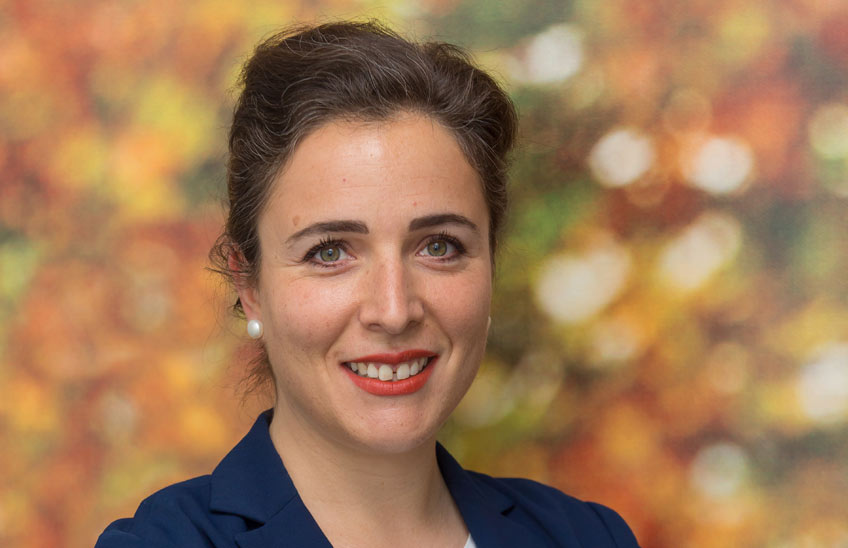A researcher from the University leads a project on cyber-violence at the high school European Gender Equality website.
Eleonora Esposito, from Institute for Culture and Society, will elaborate a conceptual framework to define the forms of this new violence and indicators to combat it in the Member States of the European Union.

FotoManuelCastells/Eleonora Esposito
27 | 08 | 2021
Eleonora Esposito, researcher at the Institute for Culture and Society (ICS) at the University of Navarra, leads a project on gender-based cyber-violence as a leading national expert at the European Institute for Gender Equality (EIGE), located in Vilnius (Lithuania).
The EIGE is an agency of the European Union (EU) that strengthens and promotes gender equality in the 27 Member States. It collects and produces programs of study and statistics on gender inequalities. This research enables a better understanding and awareness of topic and helps policy makers to bring Europe closer to gender equality.
Specifically, Eleonora Esposito has joined the Gender-Based Violence (GBV) Unit, where she is developing a conceptualframework to define the different forms of cyber-violence and a series of indicators to help combat it in EU member states. This new form of violence is still "uncharted territory", says the expert, and for this reason she considers it necessary to establish "objective parameters" that European and national legislative systems can recognise and take into account.
In this sense, she says that the first challenge is "tohomogenise the conceptualisation of cyber-violence: what constitutes violence and what does not, what is the role of gender in violence, what specific laws exist in the countries to combat it, what is the experience of being a woman on the internet and how does it differ from that of men...". It also studies intersectional aspects such as being a woman and belonging to an ethnic or religious minority or having a disability.
Recommendations for the 27 Member States
At the end of the two-year project, it will send its conclusions to the European Commission, which will then draw up a series of recommendations. "Member States have very different realities and this needs to be considered for the final report , so that it can be adapted to these different contexts," he says.
For the development of this project, Eleonora Esposito has previous experience of the one she developed at the group 'Public discourse' of the ICS thanks to a scholarship Marie Curie of the European Commission. "Most of the people I work with at work come from governments, ministries, NGOs.... My perspective as a researcher can enrich them enormously," she says.
At the ICS, she has explored online violence against European women leaders. "Their public profile often makes them the focus of online attacks," she notes. However, that visibility also gives them more opportunities to speak out than other anonymous women who are also victims of digital harassment. The lesson," she says, "is that we need to expand approach to protect all those at status who are vulnerable, not just those who are most exposed in the public sphere.
Esposito warns that much remains to be done to eradicate digital violence because of market interests: "It has to do with affective interaction and polarisation. Intense feelings and strong emotions - such as hate - generate more clicks, which is what the platforms are looking for.
